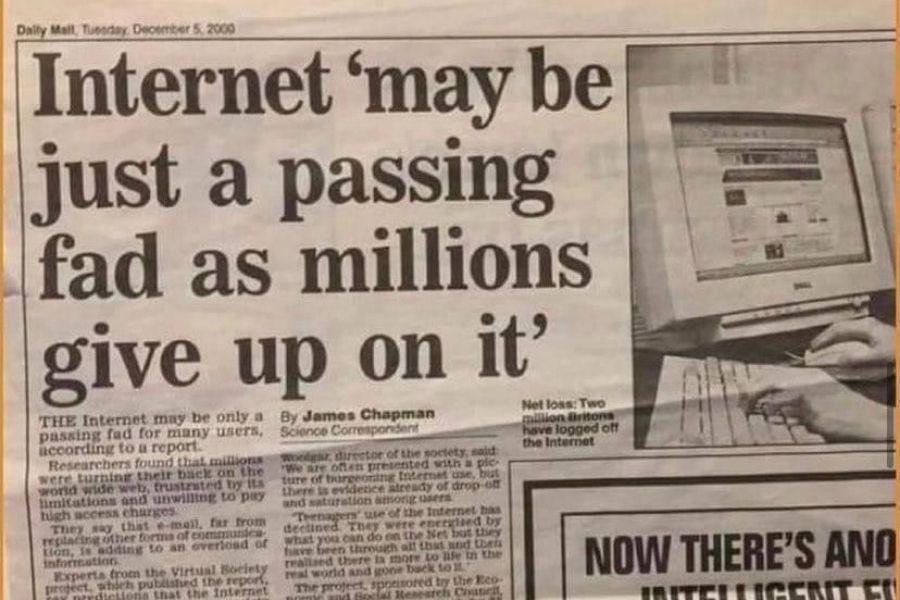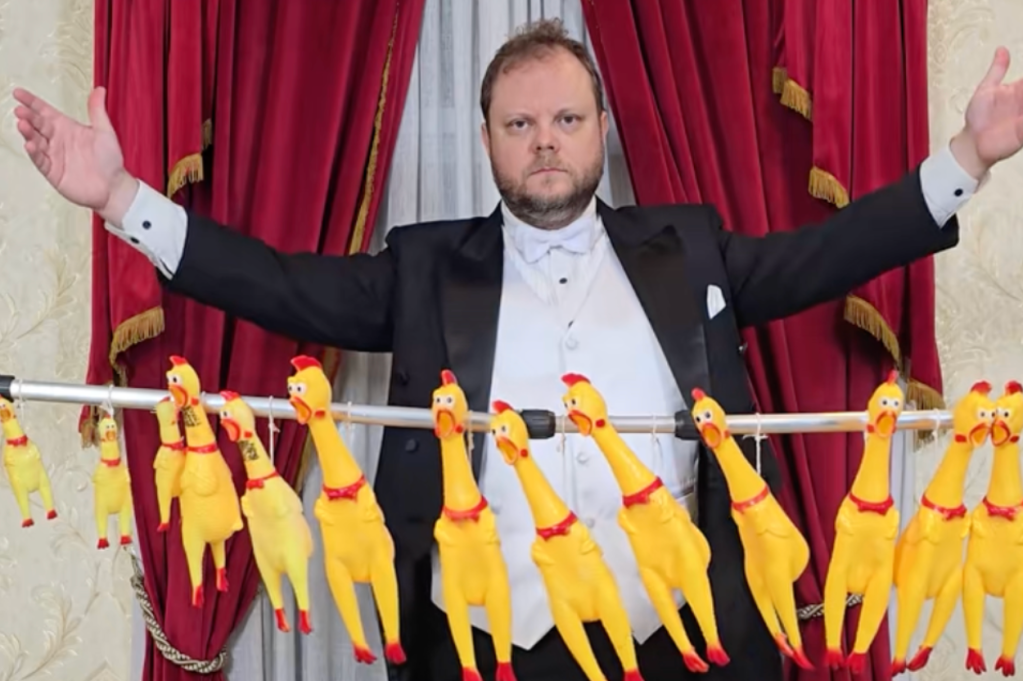Those of us who are old enough to remember the world before we became completely dependent on the internet could never have predicted what life would be like now. Some of the things the internet has enabled us to do—wireless video chats with friends halfway around the globe, ordering food to be delivered to our door at the click of a few buttons, virtual support groups for every possible interest or ailment—were the stuff of imaginary, far-futuristic worlds, surely not realistic to expect in our lifetimes. (I mean, I figured we’d have flying cars before we’d have computers we could fit in our pockets, yet here we are.)
The 1990s were this weird in-between phase where the tech geeks were all about the .com world and tech-reluctant normies were all, “Gretchen, stop trying to make the internet happen. It’s not going to happen.” Once the internet started becoming popular, some people did try to predict how it would all turn out.
Some predictions were wrong. Ridiculously, hilariously wrong. And on the flip side, David Bowie, in his apparently infinite wisdom, was so spot on it’s almost scary.
Let’s look at a prediction that turned out to be embarrassingly off-base. Former Head of Strategy at Amazon Studios Matthew Ball shared a clip from the Daily Mail newspaper in the year 2000 with the headline “Internet ‘may be just a passing fad as millions give up on it.’”
“Researchers found that millions were turning their back on the world wide web, frustrated by its limitations and unwilling to pay high access charges,” it reads.
“They say that e-mail, far from replacing other forms of communication, is adding to an overload of information.”
(Go ahead and pause for maniacal laughter here.)
“Many teenagers are using the internet less now than previously, they conclude, and the future of online shopping is limited.”
Ah, the adorable, pre-Amazon naivete.
Even a counter to that piece written by one Jane Wakefield a few days later had some hilarious lines in it. While urging not to throw out the the baby internet with the bathwater, Wakefield wrote, “It should come as no surprise to us that people are failing to see the point of the Internet. If you don’t need access to a huge online encyclopaedia, if you don’t fancy trying to buy a cheapish CD online, if you don’t enjoy watching jerky videos of hardcore porn, then you might be right to question why you need a Net connection. Unlike TV (how many times have you heard the phrase “former TV watcher”) the Internet is still dispensable.
Except of course for email.”
BWAAHAAHHAAA. That’s right. The only indispensable part of the web in 2000 was e-mail, which in some ways feels like the most archaic part of the internet now. Too funny.
David Bowie, on the other hand, predicted the impact the internet would have on society in 1999 and totally nailed it.
He was so right in that we had barely seen the tip of the iceberg in 1999. He was also right in that the impact to society—both good and bad—was unimaginable. Exhilarating and terrifying. We’re living that now.
“The context and state of content is going to be so different to anything that we can really envisage at the moment,” he said. “Where the interplay between the user and the provider will be so in sympatico it’s going to crush our ideas of what mediums are all about.”
Whoa. That’s some seriously prescient prognosticating there, Bowie. (He really did see what was coming. He even started his own internet service provider in 1998 while other musicians scoffed at the world wide web.)
Going back just a bit further, Matthew Ball also shared an op-ed from a 1995 Newsweek in which Clifford Stoll writes that he is “most uneasy about this trendy and oversold community” of the internet. Ball said it “reads exactly like Metaverse criticisms.”
Indeed, Stoll basically describes our current living situation with “telecommuting workers, interactive libraries and multimedia classrooms…electronic town meetings and virtual communities” and more as if it were some kind of absurdity.
And maybe it is. After all, he accurately described the other part of our current living situation, which is that “Every voice can be heard cheaply and instantly. The result? Every voice is heard. The cacophony more closely resembles citizens band radio, complete with handles, harassment, and anonymous threats. When everyone shouts, few listen.”
Wowsers. Yep. Good times.
So what did we learn here?
Don’t underestimate the future of technology. And always listen to David Bowie. The end.
This article originally appeared on 12.22.21

























